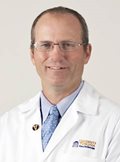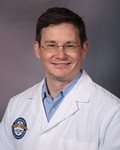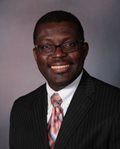During the Society’s Annual Business Meeting on Tuesday, April 27, 2021, ASCRS Fellows cast their votes and approved the proposed Executive Council Officers and Members-at-Large. 2021 Fellows and International Fellows were approved unanimously in a separate vote. Please join us in welcoming the new 2021-2022 Executive Council Officers and Members at Large. A big congratulations to our 2021 Fellows and International Fellow members.
 President: Thomas E. Read, MD
President: Thomas E. Read, MD
Thomas E. Read, MD serves as the Cracchiolo Family Professor and Chief, Division of Gastrointestinal Surgery at the University of Florida College of Medicine. Dr. Read has served as Chair of several ASCRS committees, including as Program Chair for the 2007 annual meeting, and represented our specialty at the American College of Surgeons, serving as Chair of the Advisory Council and as specialty Governor. He has also served as President, and Chair of the Examination Committee, of the American Board of Colon and Rectal Surgery. Dr. Read has an interest in editorial work, having served as Co-Editor of
Diseases of the Colon, and currently serves as the colorectal Associate Editor for
Annals of Surgery and Editor-in-Chief of
Seminars in Colon and Rectal Surgery. Dr. Read has been fortunate to participate in the training of many outstanding physicians and is grateful to have been the recipient of 20 awards for teaching, education and mentorship.
 President-Elect: Conor P. Delaney, MD, PhD
President-Elect: Conor P. Delaney, MD, PhD
Dr. Delaney is CEO and President for the Cleveland Clinic Florida Region having previously served as Chairman of the Digestive Disease and Surgery Institute at the Cleveland Clinic. He has served on many ASCRS committees, in addition to terms on Council, and as Treasurer. Dr. Delaney also serves on committees for many national and international societies and editorial boards, and was president of the Midwest Surgical Association and the International Society of Laparoscopic Colorectal Surgery. He has lectured and published extensively in colorectal surgery, and currently holds the Robert and Suzanne Tomsich Distinguished Chair in Healthcare Innovation.
 Vice President: Matthew G. Mutch, MD
Vice President: Matthew G. Mutch, MD
Dr. Matthew Mutch is the current Chief of the Section of Colon and Rectal Surgery at Washington University School of Medicine in St Louis, MO. He also serves as the Secretary for ASCRS, is a board member of the American Board of Colon and Rectal Surgeons and is an associate editor for Diseases of Colon and Rectum. He has also served as the Chair of the Committee on Committees and Self-Assessment committees, and was the Program Chair for the 2010 ASCRS Annual Meeting.
 Past President: Neil H. Hyman, MD
Past President: Neil H. Hyman, MD
Dr. Hyman is Professor of Surgery, Chief of the Section of Colon and Rectal Surgery and Co-director of the Center for Digestive Diseases at the University of Chicago Medicine. He is President of the American Society of Colon and Rectal Surgeons, and Director of the American Board of Colon and Rectal Surgery.
 Secretary: Najjia N. Mahmoud, MD
Secretary: Najjia N. Mahmoud, MD
Dr. Najjia Mahmoud is Chief of the Division of Colon and Rectal Surgery at the University of Pennsylvania. She is immediate past President of the American Board of Colon and Rectal Surgery and is a current Member-at-Large of the Executive Council of ASCRS. She has served as Chair of Continuing Certification at the ABCRS and has been involved in numerous committees at ASCRS. She has also served on the Board of Trustees of the Research Foundation and as Vice-Chair of the 2008 Annual Tripartite Meeting.
.jpg?width=120&height=179) Treasurer: Sonia Ramamoorthy, MD
Treasurer: Sonia Ramamoorthy, MD
Dr. Sonia Ramamoorthy is the Chief of the Division of Colorectal Surgery at UC San Diego Health System. She served as Member-at-Large on the ASCRS Executive Council from 2016-2019 and as ASCRS/Research Foundation Treasurer from 2020-2021. She is the founding director of the ASCRS Leadership and Professional Development Program and has served on several ASCRS committees including New Technology where she was Chair from 2013-2016 and as Assistant Program Chair of the Tripartite meeting in 2017. Dr. Ramamoorthy is currently completing her MBA at the Radys School of Management at UCSD.
 President, Research Foundation of the ASCRS: Ronald Bleday, MD
President, Research Foundation of the ASCRS: Ronald Bleday, MD
Dr. Ronald Bleday serves as the Chief of the Section of Colorectal Surgery and Associate Chair of Surgery for Quality and Safety at the Brigham and Women’s Hospital, Boston, MA. He is also Co-Chair of the Colon and Rectal Cancer clinic at the Dana-Farber Cancer Institute, Boston, MA. He is the President of the American Board of Colon and Rectal Surgery Research Foundation. He previously headed the Scientific Committee of the ASCRS Research Foundation has been Principal Investigator or two cooperative group trials.
Members-at-Large
2019-2022
 Charles M. Friel, MD
Charles M. Friel, MD is a Professor of Surgery at the University of Virginia where he also serves as the Program Director for general surgery and the chief of the section of colon and rectal surgery. Dr. Friel has been at UVA since 2001 after completing his general surgery training at the BI-Deaconess Medical Center and his Colorectal Fellowship at the University of Minnesota. His career has focused on surgical education, for which he has been recognized nationally with the ASE Philip J. Wolfson Outstanding Teacher Award and by admission into the ACS Academy of Master Surgeon Educators. In addition to serving on several ASCRS committees, he has chaired the self-assessment committee (CARSEP) and is also currently a co-chair for the ACS self-assessment committee (SESAP).
 Jan Rakinic, MD is Professor of Surgery, Chief of the Section of Colorectal Surgery and Vice Chair for Safety, Quality, and Clinical Operations of the Department of Surgery at Southern Illinois University, and the Program Director of the SIU-Springfield Clinic Colorectal Surgery Residency, having begun the program in 2007 with acceptance of the first trainee in 2009. Dr. Rakinic has served the field of Colorectal Surgery extensively: as Chair of the Residency Review Committee for Colon and Rectal Surgery for the Accreditation Council on Graduate Medical Education, as President of the Association of Program Directors in Colon and Rectal Surgery, and on the ACGME Milestones Project/Colon and Rectal Surgery Group. She is a past President of the American Board of Colon and Rectal Surgery and a Senior Board Examiner for the American Board of Colon and Rectal Surgery. She has served on many ASCRS committees during her career.
Jan Rakinic, MD is Professor of Surgery, Chief of the Section of Colorectal Surgery and Vice Chair for Safety, Quality, and Clinical Operations of the Department of Surgery at Southern Illinois University, and the Program Director of the SIU-Springfield Clinic Colorectal Surgery Residency, having begun the program in 2007 with acceptance of the first trainee in 2009. Dr. Rakinic has served the field of Colorectal Surgery extensively: as Chair of the Residency Review Committee for Colon and Rectal Surgery for the Accreditation Council on Graduate Medical Education, as President of the Association of Program Directors in Colon and Rectal Surgery, and on the ACGME Milestones Project/Colon and Rectal Surgery Group. She is a past President of the American Board of Colon and Rectal Surgery and a Senior Board Examiner for the American Board of Colon and Rectal Surgery. She has served on many ASCRS committees during her career.
 Sharon L. Stein, MD, FACS, FASCRS,
Sharon L. Stein, MD, FACS, FASCRS, is a colorectal surgeon at University Cleveland Medical Center (UH) and Associate Professor, Surgery at Case Western Reserve University (CWRU) School of Medicine. She is the Director of University Hospitals Surgical Outcomes Center: UH RISES. She is the co-founder of the Annual Colon and Rectal Surgery Career Course and faculty mentor for the Sunday night colon and rectal surgery educational program. She has served on numerous ASCRS committees including chair of the Public Relations Committee and Young Surgeons Committee. She currently serves as National Program Chair of the 2022 Annual Scientific Meeting.
2020-2023
 Liliana Bordeianou MD, MPH
Liliana Bordeianou MD, MPH is the Chief of the Colorectal Surgery and the Pelvic Floor Disorders Centers at the Massachusetts General Hospital, and the Co-Chair of the Mass General Brigham HealthCare Colorectal Surgery Collaborative. Dr. Bordeianou served on and led as vice chair or chair, several ASCRS committees. Most recently, Dr. Bordeianou serves as the founding chair of the ASCRS Steering Committee on Pelvic Floor Disorders and the Chair of the Pelvic Floor Disorders Consortium. She is also a member of the editorial board for the Diseases of Colon and Rectum and an examiner for the American Board of Colorectal Surgery.
 Craig A. Reickert, MD, MBA
Craig A. Reickert, MD, MBA serves as the Division Head of Colon and Rectal Surgery and Vice-Chair of Clinical Operations in the Department of Surgery at Henry Ford Hospital in Detroit, MI. He has previously served on multiple ASCRS and ACS committees and is currently the Vice-Chair of the Continuing Education Committee.
 Elizabeth C. Wick, MD
Elizabeth C. Wick, MD is a professor of surgery at the University of California, San Francisco where she also serves as Vice Chair for Quality and Safety in the Department of Surgery. She combines clinical work with research in perioperative quality and safety and has been continuously funded by the NIH and AHRQ since 2010. Liza is currently leading a national collaborative aimed at accelerating adoption of enhanced recovery principles, AHRQ Safety Program for Improving Surgical Care and Recovery.
2021-2024
 Debra H. Ford, MD
Debra H. Ford, MD is Associate Professor of Surgery, Head of the Section of Colon and Rectal Surgery and the Sr. Associate Dean for Academic Affairs at the Howard University College of Medicine in Washington, DC. In addition, she is the founding medical director of the Howard University Health Sciences Simulation and Clinical Skills Center (ACS AEI). She currently serves on the ASCRS Membership Committee and has previously been a member of the following ASCRS Committees: Awards, Program, Young Surgeons, Resident, and Self-Assessment.
 Jonathan A. Laryea, MD
Jonathan A. Laryea, MD serves as Chief of the Division of Colon and Rectal Surgery and Professor of Surgery at the University of Arkansas for Medical Sciences. He is also the Medical Director of the Cancer Service Line at the Winthrop P. Rockefeller Cancer Institute. He is the Vice Chair of the Diversity, Equity and Inclusion Committee of ASCRS. He previously served on the Young Surgeons Committee, Fundamentals of Rectal Cancer Committee, CARSEP Committee, Program Committee and the Diversity Taskforce.
 Scott R. Steele, MD, MBA
Scott R. Steele, MD, MBA serves as the Chair of Department of Colorectal Surgery at the Cleveland Clinic in Cleveland, OH. He is the President-elect of the American Board of Colon and Rectal Surgery and serves as a Co-Editor for Diseases of the Colon & Rectum. He has previously served on multiple ASCRS committees and been the Vice-Chair or Chair of four, as well as serving as the Vice-Chair of the 2017 Annual Meeting.
Honorary Fellows
Nasser Al-Sanea, MD
Nam Kyu Kim, MD
Charles Knowles
April Roslani, MD
Thandinkosi Madiba ,MD
Fellow and International Fellow
International Fellows
Francisco Abarca Rendon, MD
Giovanni Dapri, MD
Maria Michailidou, MD
Rohin Mittal, MD
Diego Naiderman, MD
Sarhan Sydney Saad, MD, PhD
Marie Dione Parreno Sacdalan, MD
Fellows
Anthonia Adewole, MD
Piyush Aggarwal, MD
Jennifer Agnew, MD
Bader Alshaban, MD
Anushka Arumugasaamy, MD
Theodor Asgeirsson, MD
Greta Bernier, MD
Avinash Bhakta, MD
Kristina Booth, MD
Matthew Brady, MD
Stephen Brandstetter, MD
Ahmed Chadi, MD
Ayana Chase, MD
Matthew Chauviere, MD
Jill Clark, MD
Ohmar Coughlin, MD
Thomas Curran, MD, MPH
Michelle DeLeon, MD, FACS
Jeffrey Douaiher, MD
Joanne Favuzza, DO
Justin Fischer, MD
Wissam Halabi, MD
David J. Hiller, MD
Christine Hsieh, MD
Michael Huck, MD
Nimalan Jeganathan, MD
Gifty Kwakye, MD, MPH
Erica Laipply, MD
Lawrence Lee, MD
Kathleen Lee, MD
Jason Lei, MD
Nicole Lopez, MD
Sridevi Maddineni, MD
Tafadzwa Makarawo, MD
Nathalie Mantilla, MD
Benjamin Martin, MD
Kiranmayi Palla Muddasani, MD
Jennifer Paruch, MD
Nikhil Patel, MD
Uma Phatak, MD
David Rosen, MD
Dan Enger Ruiz, MD
Maryam Naseem Saidy, MD
Daniel Sarmiento, MD
Jeffrey Scow, MD
Beth-Ann Shanker, MD
Holly Sheldon, MD
Benjamin Shogan, MD
John Tillou, MD
Poornima Vanguri, MD
Maria Sophia Villanueva, MD
Nicole Wieghard, MD
Lauren Wilson, MD
Matthew R. Wilson, MD
Joshua Wolf, MD
Christian Zalai, MD